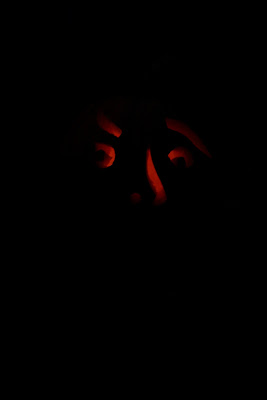The Un-Civics
As an 8th grader, I took a genuinely old-school class called "Civics" that was required of everyone.
Civics was a class in government, similar to the subject taught today. But at least in my school Civics was more. It included an element we might call citizenship, the point of which was to help us become good citizens. If a democracy functions on the strength of how informed and responsible its people are, as our forefathers clearly believed, a certain amount of civic awareness is essential.
My classmates and I were not particularly strong on the practical tools of responsibility -- at least the boys weren't. Despite the odds, that class provided practical lessons that I still remember.
Among the projects that we immersed ourselves in was a city planning project, in which we laid out a town, devised a charter, elected a town manager (a configuration we preferred to "mayor"), and addressed issues of infrastructure, such as where to put streets, where to locate schools, when and how to put up necessary signs, how to raise money to pay for it all, and so forth. You might call these necessary government functions. Some things just need to be done.
We also held a primary election. Given that New Hampshire was in a Republican state, during that primary season our mock-primary election featured Republican front runners -- Nelson Rockefeller, Margaret Chase Smith, and Barry Goldwater. There was no Democratic contest that year as the other candidate was an incumbent president.
Through a process that I no longer recall, I was chosen to run as Barry Goldwater. I am certain I protested that I was a poor choice and, furthermore, that it was unfair to give me Goldwater. Rockefeller was a popular moderate Governor from New York; Smith was a very popular moderate Senator from Maine, which, given that Maine was 10 miles away, meant we knew a lot about her; but Barry Goldwater was from Arizona and known even among Republicans as an "extremist."
We were told to campaign for our mock election by forming a campaign committee and then by giving a speech. Voting to determine the winner would follow the speeches. I don't know what my committee actually did besides making posters on construction paper, but I was on my own for the speech.
To cut a long campaign down to tolerable size, I approached my speech in a totally uncharacteristic fashion: I prepared. I bought Goldwater's book, The Conscience of a Conservative, and I read it. I am not sure whether it was more impressive that I paid the 50 cent cover price or that I read all 127 pages, but I will let the preparation speak for itself.
I spent hours on my speech, making sure I understood Goldwater's ideas. As if that were not enough, I made sure my language forcefully articulated the issues his campaign was about. When it came time to deliver our speeches, my opponents clearly had not prepared. Rockefeller's stand-in said two minutes worth of things like "my opponent is a chump." He got laughs. Margaret Chase Smith apologetically noted that women could be worthy public servants.
For the young, this election was in 1964, a long time ago. Nostalgia aside, we have been through a lot since 1964 that should not need to be repeated. Few of us really want those days back.
From time to time, I think about what I learned in Civics class. This extremely long campaign season I have had many opportunities to do so. The American people, as candidates like to say, have been subjected to enough ignorance and stupidity to embarrass a class of 8th grade boys -- and they don't embarrass easily.
There are lots of ways to express opinions that will one day embarrass us: signs on lawns that say "America vs Obama," for example. They are just wrong. In every way wrong. Claims that Obama is a socialist or, as I read two weeks ago in a local paper, that he is a communist, are so glaringly out of touch as to be laughable if they weren't also indicators of how badly informed our electorate can be. And those urgent warnings by folks with religious views like my own who claim this President is anti-religion.
Countering these claims would take up too much time and space in an already long blog. Best to consider them this way. Like the jack-o-lantern above, they are pretty scary in the dark. But in the daylight, with the flame of rumor extinguished, they are . . . well, they are something else entirely.
It all makes me wonder why Civics was not required at every grade level like Math and English. Maybe it should be a requirement for voter registration.
Tomorrow I plan to vote for the President. After work, I will stay away from election coverage and go to bed early with a good book.
I am praying that the President wins. But either way, I will sleep well. I have every confidence that God is still sovereign.
PS
My 8th grade campaign speech took 12 minutes. I touched on all the crucial points of Goldwater's platform, including the developing war in Vietnam and Civil Rights.
I don't have the speech any longer for reference, sadly, but I think it was one of the most effective political speeches ever.
For the record, I won the mock election in a landslide. I know I made my mother proud.
























